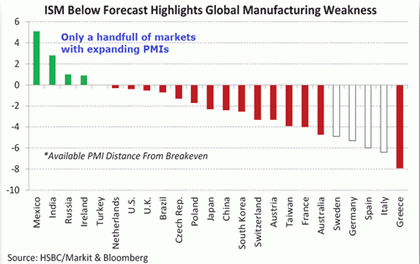Investing in Real Estate: Q&A with Mark Mascia
Would You Buy Property in India, or in the United States?
BIZ INDIA:
Investors face an economic situation in the United States today wherein prices of commercial and residential properties have kept on dropping since 2006 (based on data from the U.S. Bureau of Economic Analysis) and the outlook is too uncertain and therefore risky to buy now and see prices plunge further.
What would you suggest they do here in the U.S.? Currently Indian and American investors are buying fair-priced properties in the suburbs of Mumbai, New Delhi, and Pune in India because they have confidence in India’s economic outlook, unlike in the U.S., where people in polls have said that it is “going in the wrong direction”?
Mark Mascia:
The difference between investing in real estate in the US versus India comes down to risk factor. What are the returns that you want to risk or gain based on your investments? Do you want a stable, safe return or do you want more volatility?
There are many opportunities in India for returns greater than 20 percent, but at the same time, there are risks of losing everything – even 100 percent of your money.
By investing in India, it might appear safe from recent years, but that is extremely short-sighted and risky when it comes to real estate investments. Russia seemed like a safe real estate investment until the Ruble collapsed in 1996.
The same thing also happened in other emerging markets, like Brazil, but with the US, investors know what they are getting because of government regulation and currency stability.
Think back to 2009 when the US real estate market was decimated over a few months. Had that happened in India, the losses would have been three times as bad and would likely take years –if not decades to recover. The US real estate market has already recovered from those losses.
You might get smaller returns of five to six percent in the US real estate market, but ultimately, investors know what they are getting over the long-haul, and they know their risks. When comparing India to the US for real estate investments, these factors should be taken into account.
BIZ INDIA:
U.S. corporate taxes are so high. A large number of wealthy Indians in the U.S. own hotels and motels, technology companies, hospitals-medical clinics, and import-export-wholesale-retail firms. What can you suggest they do to minimize a) income tax bites, and b) property tax bites?
Mark Mascia:
In regards to property taxes, Indian investors should look at the stability of a city or state. For example, Detroit, Michigan is on the verge of bankruptcy and this will have an impact on the property tax base.
With my real estate investment firm, Mascia Development, our analysts scrutinize local and state budgets to see whether they are balanced or on the brink of bankruptcy.
This type of analysis can help you stay away from real estate markets where the property tax bite can become harsher after the investment has been made.
We also look at the rental market to assess whether the commercial market can pass on rent increases to tenants. As for how to minimize the income tax bites, that is a very broad question based on an individual or company’s income bracket, as well as ownership level.
But generally speaking, real estate investments do provide many tax deductions and smaller gains taxes than traditional investments.
Mark Mascia is President and CEO of Mascia Development, LLC, a diversified real estate investment firm with headquarters in Manhattan in New York City. He has overall responsibility for managing the investment and operating activities of Mascia Development.
His energy, talent and drive have allowed him to achieve extraordinary success at an accelerated rate when compared to his contemporaries.
Prior to forming Mascia Development Mark was in charge of developing over 2,500 residential units and multiple retail and mixed use properties with a total portfolio value of over $1.1B.
Mark was formerly the Vice President at SHVO Development, LLC, a multi-national luxury real estate development company. During his tenure at SHVO, Mark added global experience to compliment his domestic real estate proficiency. Working in Europe, the Middle East, Central America, and Asia.








